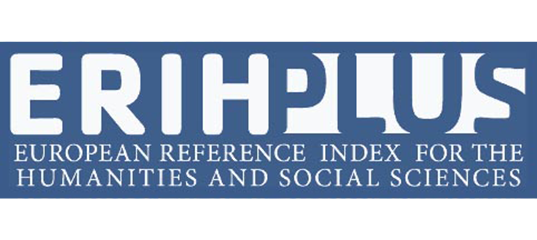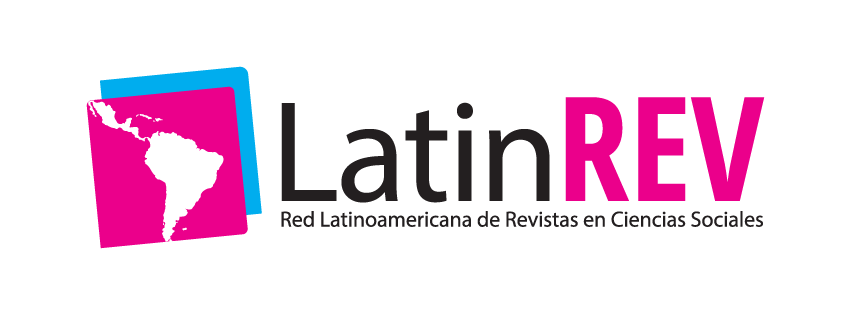Community Tourism and Museum: Articulation for the Strengthening of local bases
DOI:
https://doi.org/10.46480/esj.5.1.97Keywords:
community tourism, community museums, articulation, strengthening, rural communities.Abstract
In the context of tourism planning and development, the community is conceived as a nucleus of organized people committed to their collective well-being. The experience of community-based tourism and museum initiatives in communities is impacting the collective cultural practices and imaginations of a community. Thus, the need to study the theoretical articulation between community tourism and community museum was born, two locally based initiatives that in their constructive process converge to generate benefits for community development. In order to respond methodologically, the research used the theoretical documentary base and the method of analysis-synthesis. The descriptive character allowed identifying three criteria for reflection: correlation between ecology and culture; identity catalyst and community social structure strengthener. The results show that this articulation works in a complementary way because it shows the harmony of human beings between the ecological and cultural system, at the same time it represents a scenario of resilience because the diversification of activities provides alternative opportunities for community development.
Downloads
References
Abreu, J. L. (2014). El Método de la Investigación Research Method. Daena: International Journal of Good Con-science, 9(3), 195–204. http://www.spentamexico.org/v9-n3/A17.9(3)195-204.pdf
Adger, W. N. (2000). Social and ecological resilience: are they related? Progress in Human Geography, 24, 347. https://doi.org/10.1191/030913200701540465
Alemán, A. (2011a). Los museos comunitarios participativos. Una aproximación a la Nueva Museología. Cultura, 25, 113–125. http://www.fcctp.usmp.edu.pe/cultura/imagenes/pdf/25_5.pdf
Alemán, A. (2011b). Los museos comunitarios participativos. Una aproximación a la Nueva Museología. Cultura, 25, 113–125.
Amati, C. (2013). “We all voted for it”: experiences of participa-tion in community-based ecotourism from the foothills of Mt Kilimanjaro. Journal of Eastern African Studies, 7(4), 650–670. https://doi.org/10.1080/17531055.2013.841023
Aznar, M., & Hoefnagels, H. (2019). Empowering Small Rural Communities through Heritage Tourism. In Delivering Tourism Intelligence: From Analysis to Action Bridging Tourism Theory and Practice (Vol. 11, pp. 49–60). Emer-ald Publishing Limited. https://doi.org/10.1108/s2042-144320190000011005
Beel, D. E., Wallace, C. D., Webster, G., Nguyen, H., Tait, E., Macleod, M., & Mellish, C. (2017). Cultural resilience: The production of rural community heritage, digital archives and the role of volunteers. Journal of Rural Studies, 54, 459–468. https://doi.org/10.1016/j.jrurstud.2015.05.002
Blapp, M., & Mitas, O. (2018a). Creative tourism in Balinese rural communities. Current Issues in Tourism, 21(11), 1285–1311. https://doi.org/10.1080/13683500.2017.1358701
Blapp, M., & Mitas, O. (2018b). Creative tourism in Balinese rural communities. Current Issues in Tourism, 21(11), 1285–1311. https://doi.org/10.1080/13683500.2017.1358701
Boonratana, R. (2010). Community-based tourism in Thailand: The need and justification for an operational definition. Kasetsart Journal - Social Sciences, 31(2), 280–289.
Brown, K., Davis, P., & Raposo, L. (2019). On Community and Sustainable Museums (K. Brown, P. Davis, & L. Raposo (eds.)).
Brown, K., & Mairesse, F. (2018). The definition of the museum through its social role. Curator: The Museum Journal, 61(4), 525–539. https://doi.org/10.1111/cura.12276
Burnell, J. (2013). Small change: Understanding cultural action as a resource for unlocking assets and building resilience in communities. Community Development Journal, 48(1), 134–150. https://doi.org/10.1093/cdj/bss059
Burón Díaz, M. (2012). Los Museos Comunitarios Mexicanos en el proceso de renovación museológica. Revista de Indias, 72(254), 177–212. https://doi.org/10.3989/revindias.2012.007
Butler, R. (1990). Alternative Tourism: Pious Hope Or Trojan Horse ? Journal of Travel Research. https://doi.org/10.1177/004728759002800310
Cabanilla, E., & Garrido, C. (2018). El Turismo Comunitario en el Ecuador. Evolución, problemática y desafíos (2018th ed., Issue September). UIDE.
Callaghan, E. G., & Colton, J. (2008). Building sustainable & resilient communities: a balancing of community capital. Environment, Development and Sustainability, 10(6), 931–942. https://doi.org/10.1007/s10668-007-9093-4
Carli, G. De. (2012). Vigencia De La Nueva Museologia En Amé-rica Latina: Conceptos Y Modelos. Abra, 24(33), 55–75.
Chontasi, D., & Ortega Vasconez, D. (2020). Comunidad con vocación turística: una visión desde los sistemas socio-ecológicos y la resiliencia. GRAN TOUR, REVISTA DE INVESTIGACIONES TURÍSTICAS, 21, 185–205.
Codina, L., & Morales Vargas, A. (2019). Mendeley: red social, descubrimiento de información y gestión de referencias. 38. https://repositori.upf.edu/handle/10230/42281
Cole, S. (2005a). Cultural Tourism, Community Participation and Empowerment. In M. Smith & M. Robinson (Eds.), Cultural Tourism in a Changing World (Issue 7, pp. 89–103). http://www.channelviewpublications.com
Cole, S. (2005b). Cultural Tourism in a Changing World (Chap-ter 6: Cultural Tourism, Community Participation and Empowerment). In Cultural Tourism in a Changing World Politics, Participation and (Re)presentation (Issue June).
Cole, S. (2019). Cultural Tourism, Community Participation and Empowerment. In M. Smith & M. Robinson (Eds.), Cultur-al Tourism in a Changing World (pp. 89–103). https://doi.org/10.21832/9781845410452
Craig, G., & Mayo, M. (1995). Community Empowerment: A Reader in Participation and Development. Zed Books. https://books.google.com.ec/books?id=oRIL6kHLVgoC
Devine, A., & Quinn, B. (2019). Building social capital in a divided city: the potential of events. Journal of Sustainable Tour-ism, 27(10), 1495–1512. https://doi.org/10.1080/09669582.2019.1639721
Donohoe, H. M. (2011). Defining culturally sensitive ecotour-ism: A Delphi consensus. Current Issues in Tourism, 14(1), 27–45. https://doi.org/10.1080/13683500903440689
Emery, M., & Flora, C. (2006). Spiraling-Up: Mapping Community Transformation with Community Capitals Framework. Community Development, 37(1), 19–35. https://doi.org/10.1080/15575330609490152
Emmanuel, T. (2016). The role of local communities in conserva-tion of archaeological and historical heritage in central and coastal Tanzania. University of Dodoma.
Escalera Reyes, J., & Ruiz Ballesteros, E. (2011). Resiliencia socioecológica: Aportaciones y retos desde la an-tropología. Revista de Antropologia Social, 20(1), 109–135. https://doi.org/10.5209/rev_raso.2011.v20.36264
Espeso-Molinero, P., & Pastor-Alfonso, M. J. (2020). Govern-ance, community resilience, and indigenous tourism in Nahá, Mexico. Sustainability (Switzerland), 12(15). https://doi.org/10.3390/su12155973
Fernández Aldecua, M. J. (2011). Turismo comunitario y empre-sas de base comunitaria turísticas: ¿estamos hablando de lo mismo? (Ensayo). El Periplo Sustentable: Revista de Turismo, Desarrollo y Competitividad, 20, 31–74.
Flick, U. (2002). Qualitative research - state of the art. Social Science Information, 41(1), 5–24. https://doi.org/10.1177/0539018402041001001
Getz, D. (1986). Tourism: A Community Approach. Annals of Tourism Research, 13(4), 667–669.
Giampiccoli, A., & Mtapuri, O. (2012). Community-Based Tour-ism: An Exploration of the Concept(s) from a Political Perspective. Tourism Review International, 16(1), 29–43. https://doi.org/10.3727/154427212x13431568321500
Gómez-Luna, E., Navas, D., Aponte-Mayor, G., & Betancourt-Buitrago, O. L. (2014). Metodología para la revisión bibli-ográfica y la gestión de información de temas científicos, a través de su estructuración y sistematización. DYNA, 81(184), 158–163.
Gunter, C. (2017a). Ecomuseums: Challenging Temporality through Community Reappropriation. Journal of Arts Management Law and Society, 47(4), 259–273. https://doi.org/10.1080/10632921.2017.1320617
Gunter, C. (2017b). Ecomuseums: Challenging Temporality through Community Reappropriation. Journal of Arts Management Law and Society, 47(4), 259–273. https://doi.org/10.1080/10632921.2017.1320617
Harrison, D., & Schipani, S. (2007). Lao tourism and poverty alleviation: Community-based tourism and the private sec-tor. Current Issues in Tourism, 10(2–3), 194–230. https://doi.org/10.2167/cit310.0
Hernández-Palestino, D., Carrillo-Rodeiguez, C. A., & Puga-Pérez, S. (2019). La Revalorización Del Patrimonio Cul-tural Paleontológico Ante la Museología Comunitaria en Zóquite, Guadalupe, Zacatecas. FILHA, 21. http://ricaxcan.uaz.edu.mx/jspui/bitstream/20.500.11845/1331/1/20190730184912_daniel.pdf
Hogg, D. E. (2016). Influence of Cultural Capital in Two Rural Appalachian Towns: A Comparative Case Study. Virginia Polytechnic Institute.
ICOM. (1972). Mesa Redonda de Santiago de Chile 1972. In Mesa Redonda de Santiago de Chile 1972.
Iju, N., & Alemán, A. (2018). Managing the Built Heritage of the Vineyards of Ica: Rural Tourism and Community Museums. Devenir - Revista de Estudios Sobre Patrimonio Edificado, 2(4), 8–26. https://doi.org/10.21754/devenir.v2i4.275
Iorio, M., & Wall, G. (2012). Behind the masks: Tourism and community in Sardinia. Tourism Management, 33(6), 1440–1449. https://doi.org/10.1016/j.tourman.2012.01.011
Johnson, P. A. (2010). Realizing rural community based tourism development: Prospects for social-economy enterprises. Journal of Rural and Community Development, 5(1), 150–162.
Jovicic, D. (2016). Cultural tourism in the context of relations between mass and alternative tourism. Current Issues in Tourism, 19(6), 605–612. https://doi.org/10.1080/13683500.2014.932759
Kamble, Z., & Bouchon, F. (2016). Developing a framework for assessing social cohesion via tourism. Tourism Review, 71(4), 272–286. https://doi.org/10.1108/TR-08-2015-0035
Keitumetse, S. O. (2009). The eco-tourism of cultural heritage management (ECT-CHM): Linking heritage and “environ-ment” in the Okavango Delta regions of Botswana. Inter-national Journal of Heritage Studies, 15(2–3), 223–244. https://doi.org/10.1080/13527250902890811
Keitumetse, S. O., & Pampiri, M. G. (2016). Community Cultural Identity in Nature-Tourism Gateway Areas: Maun Village, Okavango Delta World Heritage Site, Botswana. Journal of Community Archaeology and Heritage, 3(2), 99–117. https://doi.org/10.1080/20518196.2016.1154738
Kontogeorgopoulos, N., Churyen, A., & Duangsaeng, V. (2014). Success Factors in Community-Based Tourism in Thai-land: The Role of Luck, External Support, and Local Lead-ership. Tourism Planning & Development, 11(1), 106–124. https://doi.org/10.1080/21568316.2013.852991
Krouse, S. A. (2006). Anthropology and the New Museology. Reviews in Anthropology, 35(2), 169–182. https://doi.org/10.1080/00938150600698336
Lee, K. N. (1993). Compass and the gyroscope: Integrating Sci-ence and Politics for the Enviromental. Island Press.
Lenao, M. (2015). Challenges facing community-based cultural tourism development at Lekhubu Island, Botswana: a comparative analysis. Current Issues in Tourism, 18(6), 579–594. https://doi.org/10.1080/13683500.2013.827158
Lew, A. A. (2014). Scale, change and resilience in community tourism planning. Tourism Geographies, 16(1), 14–22. https://doi.org/10.1080/14616688.2013.864325
MacDonald, R., & Jolliffe, L. (2003). Cultural rural tourism: Evi-dence from Canada. Annals of Tourism Research, 30(2), 307–322. https://doi.org/10.1016/S0160-7383(02)00061-0
Maldonado-Erazo, C. P., De la cruz del Río-Rama, M., Noboa-Viñan, P., & Álvarez-García, J. (2020). Community-Based Tourism in Ecuador : Community Ventures of the Provin-cial and Cantonal Networks. Sustainability (Switzerland), 12(6256), 1–30.
Mantecón, A. R. (2010). El giro hacia el turismo cultural : partici-pación comunitaria y desarrollo sustentable. Cuadernos de Patrimonio Cultural y Turismo, 20, 107-.
Mayaka, M. A., Lacey, G., & Rogerson, C. M. (2020). Empower-ment process in community-based tourism: Friend rela-tionship perspective. Development Southern Africa, 37(5), 791–808. https://doi.org/10.1080/0376835X.2020.1806783
Mendoza-Ramos, A., & Prideaux, B. (2017). Assessing ecotour-ism in an Indigenous community : using, testing and prov-ing the wheel of empowerment framework as a meas-urement tool. Journal of Sustainable Tourism, 26(2), 277–291. https://doi.org/10.1080/09669582.2017.1347176
Milano, C., & Gascón, J. (2018). El turismo en el mundo rural. ¿Ruina o consolidación de las sociedades campesinas e indígenas? [Reseña].
Mira, J. J., Pérez-Jover, V., Lorenzo, S., Aranaz, J., & Vitaller, J. (2004). La investigación cualitativa: una alternativa también válida. Atención Primaria, 34(4), 161–166. https://doi.org/10.1016/S0212-6567(04)78902-7
Moscardo, G. (2019). Building community capacity: A Emergent Change for the Development of Tourism. In Building community capacity for tourism development (Vol. 53, Is-sue 9, pp. 1689–1699). https://doi.org/10.1017/CBO9781107415324.004
Mullo Romero, E. del C., Vera Peña, V. M., & Guillén Herrera, S. R. (2019). El desarrollo del turismo comunitario en Ecua-dor: Reflexiones necesarias. Revista Universidad y Socie-dad, 11(2), 178–183. http://scielo.sld.cu/scielo.php?script=sci_arttext&pid=S2218-36202019000200178&lng=es&nrm=iso&tlng=es
Murphy, P. (1985). Tourism: A Community Approach. https://books.google.es/books?hl=es&lr=&id=QjDseptVZ_IC&oi=fnd&pg=PR1&dq=peter+murphy+1985+Tourism:+A+community+approach&ots=As8WARBocc&sig=a7sXwBsDxA3IgLKw3uHBO90OI4I
Mustafa, D. (2015). Ecomuseum, community museology, local distinctiveness, Hüsamettindere village, Bogatepe village, Turkey Mustafa. Cultural Heritage Management and Sus-tainable Development, 5(1), 45–60. https://doi.org/10.1007/978-1-4419-0465-2_1243
Narváez Vargas, L. A. (2019a). El Museo Túcume y La Nueva Museología. Chungara Revista de Antropología Chilena, 51(2), 291–304. https://doi.org/10.4067/s0717-73562019005001601
Narváez Vargas, L. A. (2019b). El Museo Túcume y La Nueva Museología. Chungará (Arica), 51(2), 291–304. https://doi.org/10.4067/s0717-73562019005001601
Nicholls, C., & Altieri, M. (2017). Nuevos caminos para reforzar la resiliencia agroecológica al cambio climático. In C. Nicholls & M. Altieri (Eds.), Nuevos Caminos Para Refor-zar La Resiliencia Agroecológica al Cambio Climático (pp. 4–11). https://www.researchgate.net/publication/320962987_Creando_resiliencia_socio-ecologica_Dos_ejemplos_desde_Bolivia
Organización Mundial del Turismo. (1995). Carta del turismo sostenible. In Conferencia Mundial de Turismo Sos-tenible.
Ostrom, E., & Ahn, T. K. (2003). Una perspectiva del capital social desde las ciencias sociales: capital social y acción colectiva. Revista Mexicana de Sociología, 65, 155–233.
Paoli, A. (2011). Comunidad tzeltal, ecositema cultural y juego simbólico. Tramas, 34, 179–203.
Paveglio, T. B., Boyd, A. D., & Carroll, M. S. (2016). Re-conceptualizing community in risk research. Journal of Risk Research, 20(7), 931–951. https://doi.org/10.1080/13669877.2015.1121908
Pedro Morales. (1993). Líneas actuales de investigación en métodos cuantitativos: el meta-análisis o la síntesis inte-gradora. Revista de Educación, Núm. 300, 300, 191–221.
Pérez-Ramírez, C. A., & Flores-Montes, A. (2019). Rural Tour-ism , Environmental Impact and Resilience in Piedra Her-rada, Mexico. Agricultura, Sociedad y Desarrollo (ASyD), 16, 429–450.
Peterson, N. A., & Hughey, J. (2004). Social cohesion and in-trapersonal empowerment: gender as moderator. Health Education Research, 19(5), 533–542. https://doi.org/10.1093/her/cyg057
Pickering, C., Grignon, J., Steven, R., Guitart, D., & Byrne, J. (2014). Publishing not perishing: How research students transition from novice to knowledgeable using systematic quantitative literature reviews. Studies in Higher Educa-tion, 40(10), 1756–1769. https://doi.org/10.1080/03075079.2014.914907
Pigg, K. E. (2002). Three Faces of Empowerment: Expanding the Theory of Empowerment in Community Development. Journal of the Community Development Society, 33(1), 107–123. https://doi.org/10.1080/15575330209490145
Prabhakaran, S., Nair, V., & Ramachandran, S. (2014). Communi-ty Participation in Rural Tourism: Towards a Conceptual Framework. Procedia - Social and Behavioral Sciences, 144, 290–295. https://doi.org/10.1016/j.sbspro.2014.07.298
Prior, T., & Eriksen, C. (2013). Wildfire preparedness, commu-nity cohesion and social-ecological systems. Global Envi-ronmental Change, 23(6), 1575–1586. https://doi.org/10.1016/j.gloenvcha.2013.09.016
Rasoolimanesh, S. M., & Jaafar, M. (2016a). Community Participa-tion toward Tourism Development and Conservation Program in Rural World Heritage Sites. Tourism - From Empirical Research Towards Practical Application, May, 1–14. https://doi.org/10.5772/62293
Rasoolimanesh, S. M., & Jaafar, M. (2016b). Community Participa-tion toward Tourism Development and Conservation Program in Rural World Heritage Sites. Tourism - From Empirical Research Towards Practical Application, May. https://doi.org/10.5772/62293
Reid, K., Beilin, R., & McLennan, J. (2020). Communities and responsibility: Narratives of place-identity in Australian bushfire landscapes. Geoforum, 109(December 2019), 35–43. https://doi.org/10.1016/j.geoforum.2019.12.015
Ruiz-Ballesteros, E. (2009). Agua Blanca Comunidad y Turismo en el Pacífico Ecuatorial (Ediciones, Vol. 3, Issue 2). http://repositorio.unan.edu.ni/2986/1/5624.pdf
Ruiz-Ballesteros, E. (2011). Social-ecological resilience and community-based tourism. An approach from Agua Blanca, Ecuador. Tourism Management, 32(3), 655–666. https://doi.org/10.1016/j.tourman.2010.05.021
Ruiz-Ballesteros, E., & del Campo Tejedor, A. (2020). Commu-nity-Based Tourism as a Factor in Socio-Ecological Resili-ence. Economic Diversification and Community Participa-tion in Floreana (Galapagos). Sustainability, 12(11), 4724. https://doi.org/10.3390/su12114724
Ruiz-Ballesteros, E., Hernández, M., Coca, A., Cantero, P., & Del Campo, A. (2008). Turismo comunitario en Ecuador. Pasos. Revista de Turismo y Patrimonio Cultural, 6(3), 399–418. https://doi.org/10.25145/j.pasos.2008.06.031
Ruíz, A. A. B. (2015). Agua Blanca Comunidad y Turismo en el Pacífico Ecuatorial. 3(2), 54–67.
Ruiz, E., Hernández, M., Coca, A., Cantero, P., & Del Campo, A. (2008). Turismo comunitario en Ecuador. Pasos. Revista de Turismo y Patrimonio Cultural, 6(3), 399–418. https://doi.org/10.25145/j.pasos.2008.06.031
Sakata, H., & Prideaux, B. (2013). An alternative approach to community-based ecotourism: A bottom-up locally initiat-ed non-monetised project in Papua New Guinea. Journal of Sustainable Tourism, 21(6), 880–899. https://doi.org/10.1080/09669582.2012.756493
Salazar, N. B. (2012). Community-based cultural tourism: Issues, threats and opportunities. Journal of Sustainable Tourism, 20(1), 9–22. https://doi.org/10.1080/09669582.2011.596279
Scheyvens, R. (1999). Ecotourism and the empowerment of local communities. Tourism Management, 20(2), 245–249. https://doi.org/10.1016/S0261-5177(98)00069-7
Silva, L. (2012). Museos, turismo y desarrollo local: El caso de Belmonte, Portugal. Museo y Turismo: Expectativas y Re-alidades, 1, 179–194.
Simpson, M. C. (2008). Community Benefit Tourism Initiatives-A conceptual oxymoron? Tourism Management, 29(1), 1–18. https://doi.org/10.1016/j.tourman.2007.06.005
Singer, J., Hoang, H., & Ochiai, C. (2015). Post-displacement community resilience: Considering the contribution of in-digenous skills and cultural capital among ethnic minority Vietnamese. Asia Pacific Viewpoint, 56(2), 208–222. https://doi.org/10.1111/apv.12057
Ssenyonga, F. N. (2016). The Emerging Role of Community Museums in Uganda: The Need for Capacity Building Among Managers. Museum International, 68(1–2), 125–129. https://doi.org/10.1111/muse.12096
Ssenyonga, F. N. (2018). The Emerging Role of Community Museums in Uganda: The Need for Capacity Building Among Managers. Museum International, 68(1–2), 125–129. https://doi.org/10.1111/muse.12096
Stephens, J., & Tiwari, R. (2015). Symbolic estates: Community identity and empowerment through heritage. International Journal of Heritage Studies, 21(1), 99–114. https://doi.org/10.1080/13527258.2014.914964
Suansri, P. (2003). Community based tourism handbook. Re-sponsible Ecological Social Tour-REST.
Torres Obando, J. O. (2017). Turismo Comunitario y Su Estu-dio: Reflexiones Desde Un Enfoque Cultural Propositivo Para El Desarrollo Rural. Revista Humanismo y Cambio Social, 5, 68–73. https://doi.org/10.5377/hcs.v0i5.4995
Trapaga, I. (2018). La Comunidad, una revisión al concepto an-tropológico. Revista de Antropología y Sociología, 20(2), 161–182. https://doi.org/10.17151/rasv.2018.20.2.9
Vasconcellos, C. D. M., & Guerra, M. (2018). Museologia e Turismo de base Comunitária em Reservas Extrativistas: diálogos possíveis. Revista Iberoamericana de Turismo, 96–114. https://doi.org/10.2436/20.8070.01.92
Viljoen, J., & Henama, U. S. (2017). Growing heritage tourism and social cohesion in South Africa. African Journal of Hospitality, Tourism and Leisure, 6(4), 1–15.
Walker, B., Holling, C. S., Carpenter, S. R., & Kinzig, A. (2004). Resilience, Adaptability and Transformability in Social– ecological Systems. Ecology and Society, 9(2).
Wheeler, R. (2014). Mining memories in a rural community: Landscape, temporality and place identity. Journal of Rural Studies, 36, 22–32. https://doi.org/10.1016/j.jrurstud.2014.06.005
Downloads
Published
Issue
Section
License
Authors retain the copyright of their articles and are therefore free to share, copy, distribute, perform, and publicly communicate their work on their personal websites or in institutional repositories after its publication in this journal, provided that full bibliographic information is given to acknowledge its original publication.































